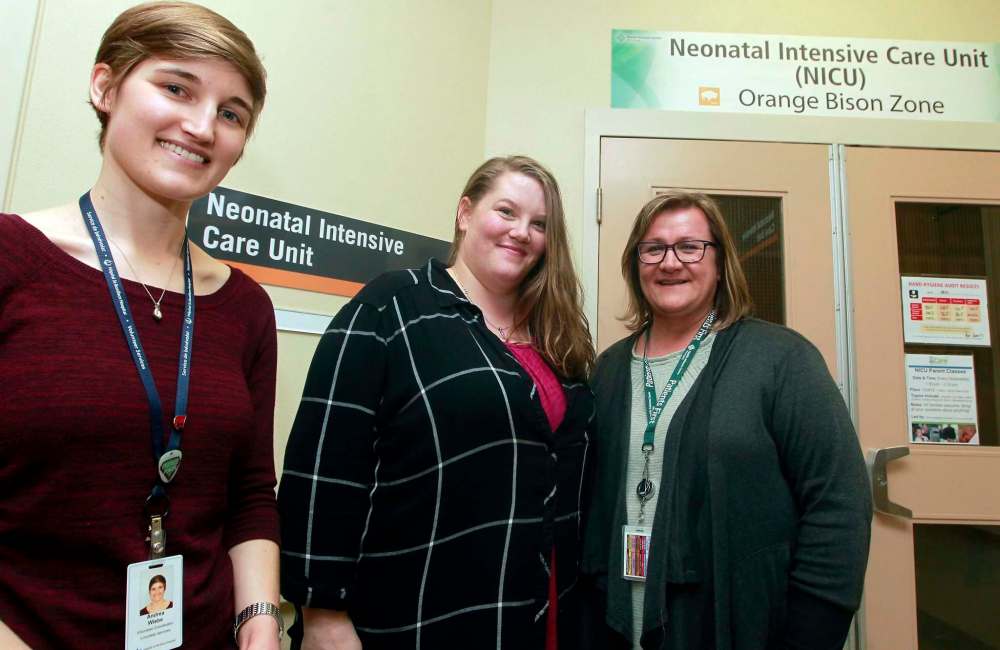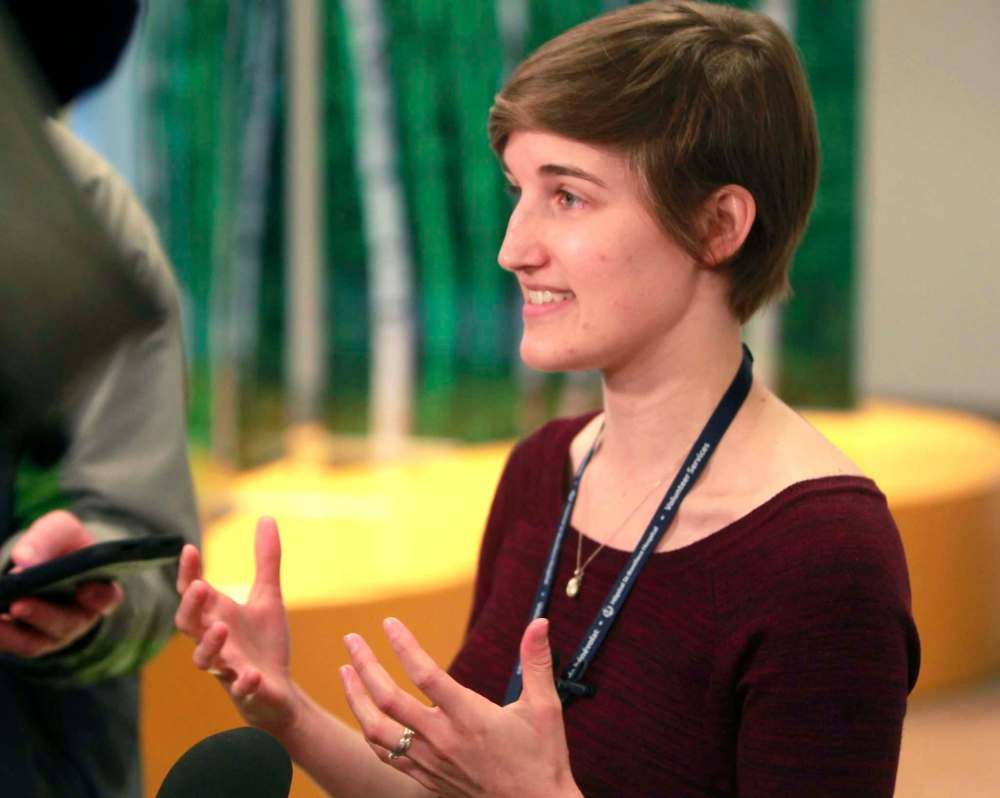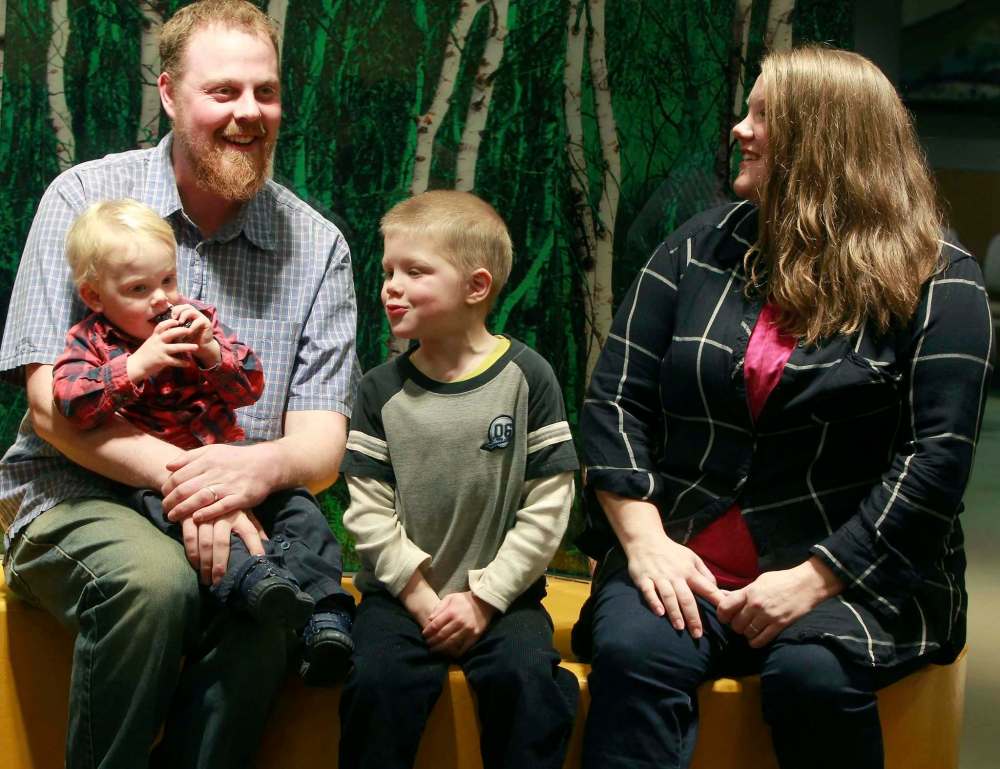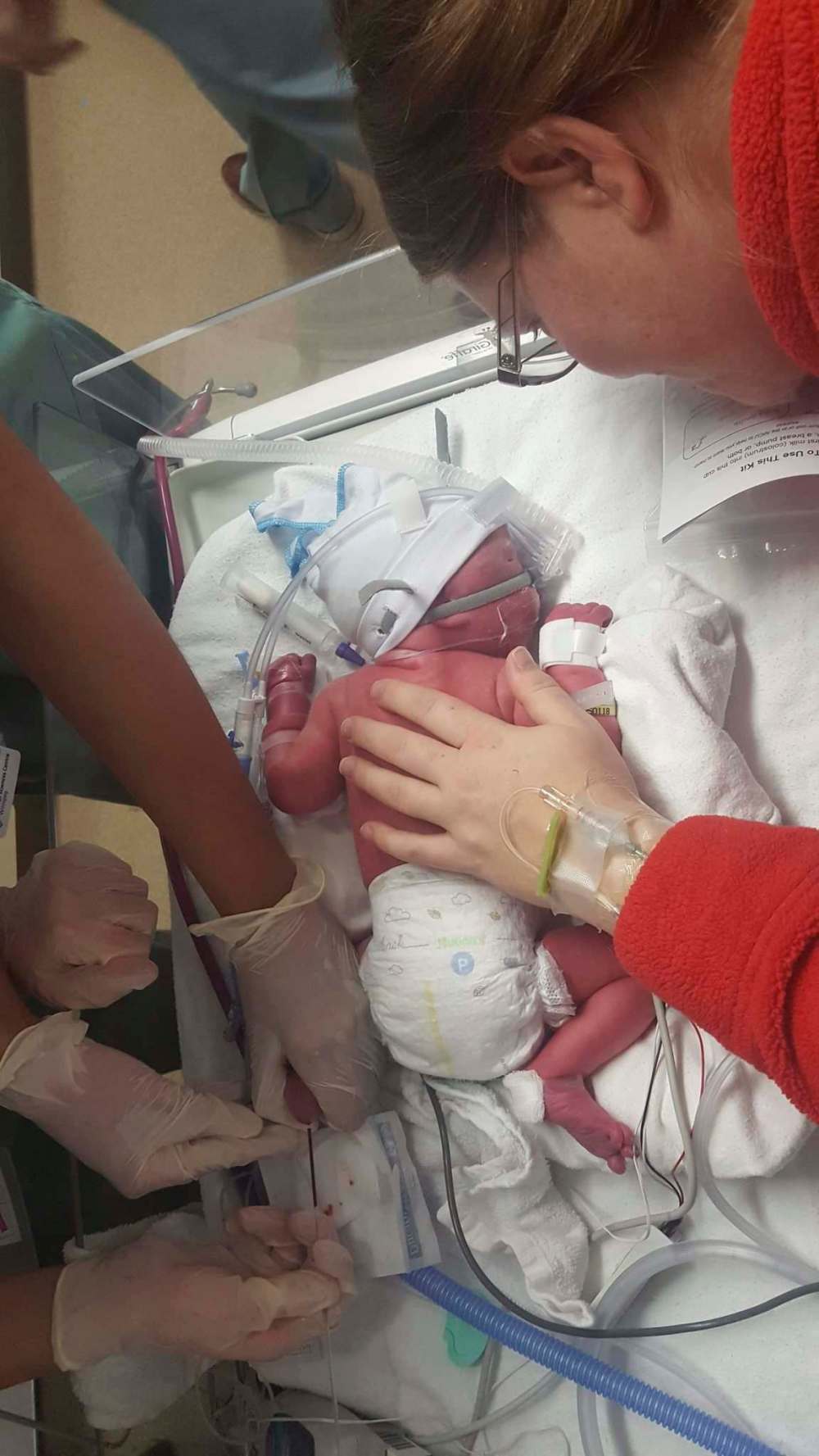Program to help parents of sick kids revived
Pairs experienced volunteers with parents of children born sick or premature
Advertisement
Read this article for free:
or
Already have an account? Log in here »
To continue reading, please subscribe:
Monthly Digital Subscription
$19 $0 for the first 4 weeks*
- Enjoy unlimited reading on winnipegfreepress.com
- Read the E-Edition, our digital replica newspaper
- Access News Break, our award-winning app
- Play interactive puzzles
*No charge for 4 weeks then billed as $19 every four weeks (new subscribers and qualified returning subscribers only). Cancel anytime.
Read unlimited articles for free today:
or
Already have an account? Log in here »
Hey there, time traveller!
This article was published 18/04/2018 (2198 days ago), so information in it may no longer be current.
In January, Holly Marie’s daughter, Ellie, was born prematurely with a congenital heart defect and a congenital trachea defect. Ellie needed heart surgery, help breathing and a stay in the neonatal intensive care unit (NICU) that continues to this day.
She was born in distress, so Marie didn’t even get to hold her daughter right away. Ellie was whisked off, a team of doctors and nurses following her out of the room, and it wasn’t until 15 long minutes later Marie finally got to meet her daughter.
“It was terrifying because she was on machines, blood was being taken, they had a tube down her throat,” Marie recalled. “You could see when you saw all that stuff on her that this is not a normal baby that you just get to take home, that we were going to be here for a while.”

So began the mother of five’s introduction to life with an infant in the NICU.
“It’s a totally different world,” she said.
“You’re emotional, you’re worried, the future is uncertain, you can’t bring your baby home and nobody else quite understands.”
What helps is to have someone to talk to who has lived through it and come out the other side, Marie said. “What mothers and families that have been through it can offer new families going into it is hope. I have been here and I am still here.”
That’s the goal of a new/updated initiative: the Veteran Parent Program, which folded a decade ago after running out of funds, is being revived thanks to a $50,000 donation for a two-year term from the Children’s Hospital Foundation of Manitoba.
‘It’s a totally different world. You’re emotional, you’re worried, the future is uncertain, you can’t bring your baby home and nobody else quite understands’– Holly Marie
There are more than 1,700 infants born sick or premature each year at hospitals that need to live — sometimes for months — in the NICU. Starting later this spring, volunteer parents whose children were once in intensive care at Winnipeg’s Health Sciences Centre or St. Boniface Hospital will be paired with parents such as Marie.
“It’s important because it’s very isolating, I think, being a parent of a premature baby or just a baby in the NICU,” said Andrea Wiebe, co-ordinator of the St. Boniface program. Wiebe, fellow co-ordinator Karen Netzel and Marie spoke to reporters Thursday at HSC.
Wiebe knows first-hand about the isolation. Her son was born in January 2017, when she was just 28 weeks pregnant. He spent 10 weeks in the NICU.
“Every day, you leave the NICU and you leave a piece of your heart behind,” she said. “Every day you have to do that is really tough.”
Wiebe and Netzel, who will co-ordinate for HSC, said they’re trying to build up their volunteer base for both men and women. They plan to start offering training in May, and introducing families to the volunteer ambassadors soon after.

Besides having parents who have lived through the experience, the program will also include parent group sessions and peer-to-peer support sessions — an expansion on the old program.
“We let the medical staff look after the babies — we look after the parents in whatever way they need,” Netzel said.
When her son was born 21 years ago, he weighed just one pound 12 ounces. Although she became friendly with some other parents whose children were also in the NICU, Netzel said they were able to take their children home sooner than her. Her son stayed in the unit for seven months.
“I had nobody that I could bounce this off of,” she said. “You have friends and families that support you, but they really don’t understand what it is. Some of them will think, ‘Oh, your baby just needs to grow.’ They don’t understand the medical aspect of all the different things that can go wrong.”
Netzel and Wiebe said they encourage mothers and fathers to apply to be volunteers. However, they say the goal isn’t really about swapping experiences.

“It’s not necessarily telling our story. It’s to be there because of our story,” Netzel said.
Their presence would be “an incredible comfort,” Marie said.
Today, doctors will try to disconnect Ellie from the breathing machine being used to keep her lungs from collapsing from the effort of exhaling through a narrow trachea. They’ve already tried three times, but each time have had to reconnect the machine.
“We’re hoping,” Marie said, before going up to visit her daughter on her 89th day in the NICU.
jane.gerster@freepress.mb.ca
History
Updated on Friday, April 20, 2018 6:28 AM CDT: Final



